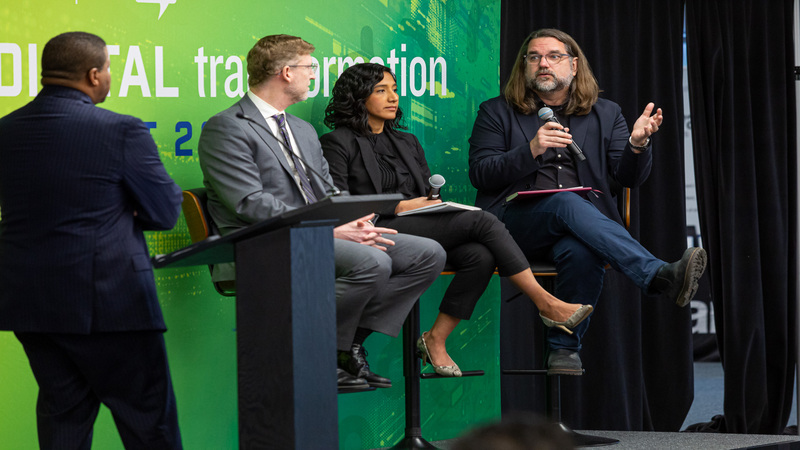
AI and IT work culture remain key areas for government to work on to enhance their customer experience going into the future, according to various government officials during the Digital Transformation Summit hosted by ACT-IAC and MeriTalk.
Mason McDaniel, chief technology officer for the Bureau of Alcohol, Tobacco, Firearms and Explosives (ATF) told attendees how small frequent changes have been successful to their modernization goals.
“Small frequent changes have led to a culture change among our users who were used to having something go live and have that capability be what they live with for 15 years, whether they like it or not,” stated McDaniel.
During the same panel discussion, Cindy Good, director of the Office of Financial Innovation and Transformation Bureau of the Fiscal Services (FIT), chimed in with what she and her agency have been doing to change the IT culture among agency workers.
“There’s a lot of cultural activities that we’re doing in engaging with communities within the Bureau of Fiscal Service, and also just educating – it’s a matter of just having them understand what’s out there,” stated Good.
Alternatively, another area that agencies must expand on to modernize their agency workforce is to “build a foundation” for AI capabilities going into the future.
“We’ve dabbled a little bit in artificial intelligence. We’ve leveraged natural language processing in our chatbots for call centers. Really, the gist of what we’re trying to do is the foundation which is like ensuring that our data is good,” Good said.
Dylan George, director of operations, Center for Forecasting and Outbreak Analytics, Center for Disease Control and Prevention (CDC), Department of Health and Human Services (HHS), noted the important symbiotic role of data and AI, and how the agency is looking to use it going into the future.
“The problem is that you have very small datasets and then most AI sort of approaches require a fairly large corpus of data to be really effective. And then to avoid a lot of the biases. And so sort of that’s one of the reasons why we are looking to use artificial intelligence for these genomic sequencing sorts of problem sets or for bigger datasets like mobility data,” stated George.
